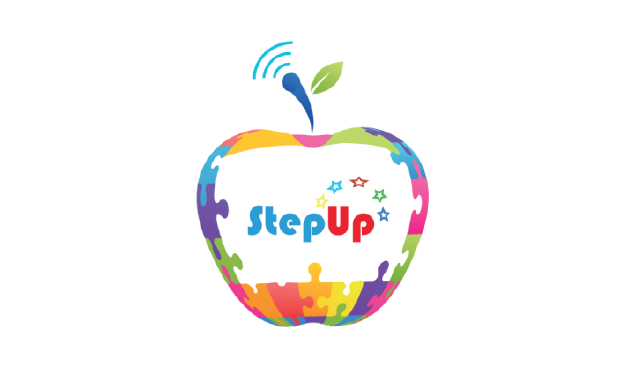Get Full Access to Lumos StepUp - PARCC Online Practice and Assessments - Grade 7 English Language and Arts
Currently, you have limited access to Lumos StepUp - PARCC Online Practice and Assessments - Grade 7 English Language and Arts. The Full Program includes,
Buy Practice Resources
 Online Program
Online Program
Huckleberry Finn (Excerpt)
By Mark Twain
In this excerpt from Chapter Five, Huck’s father arrives unexpectedly.
I HAD shut the door to. Then I turned around and there he was. I used to be scared of him all the time, he beat me so much. I reckoned I was scared now, too; but in a minute I see I was mistaken -- that is, after the first jolt, as you may say, when my breath sort of hitched, he being so unexpected; but right away after I see I warn't scared of him worth bothring about.
He was most fifty, and he looked it. His hair was long and tangled and greasy, and hung down, and you could see his eyes shining through like he was behind vines. It was all black, no gray; so was his long, mixed-up whiskers. There warn't no color in his face, where his face showed; it was white; not like another man's white, but a white to make a body sick, a white to make a body's flesh crawl -- a tree-toad white, a fish-belly white. As for his clothes -- just rags, that was all. He had one ankle resting on t'other knee; the boot on that foot was busted, and two of his toes stuck through, and he worked them now and then. His hat was laying on the floor -- an old black slouch with the top caved in, like a lid.
I stood a-looking at him; he set there a-looking at me, with his chair tilted back a little. I set the candle down. I noticed the window was up; so he had climbed in by the shed. He kept a-looking me all over. By and by he says:
"Starchy clothes -- very. You think you're a good deal of a big-bug, don't you?"
"Maybe I am, maybe I ain't," I says.
"Don't you give me none o' your lip," says he. "You've put on considerable many frills since I been away. I'll take you down a peg before I get done with you. You're educated, too, they say -- can read and write. You think you're better'n your father, now, don't you, because he can't? I'll take it out of you. Who told you you might meddle with such hifalut'n foolishness, hey? -- who told you you could?"
"The widow. She told me."
"The widow, hey? -- and who told the widow she could put in her shovel about a thing that ain't none of her business?"
"Nobody never told her."
"Well, I'll learn her how to meddle. And looky here -- you drop that school, you hear? I'll learn people to bring up a boy to put on airs over his own father and let on to be better'n what he is. You lemme catch you fooling around that school again, you hear? Your mother couldn't read, and she couldn't write, nuther, before she died. None of the family couldn't before they died. I can't; and here you're a-swelling yourself up like this. I ain't the man to stand it -- you hear? Say, lemme hear you read."
I took up a book and begun something about General Washington and the wars. When I'd read about a half a minute, he fetched the book a whack with his hand and knocked it across the house. He says:
"It's so. You can do it. I had my doubts when you told me. Now looky here; you stop that putting on frills. I won't have it. I'll lay for you, my smarty; and if I catch you about that school I'll tan you good. First you know you'll get religion, too. I never see such a son.
He took up a little blue and yaller picture of some cows and a boy, and says:
"What's this?"
"It's something they give me for learning my lessons good."
He tore it up, and says:
"I'll give you something better -- I'll give you a cowhide.
He set there mumbling for a minute, and then he says:
"Ain't you a sweet-scented dandy, though? A bed; and bedclothes; and a look'n'-glass; and a piece of carpet on the floor -- and your own father got to sleep with the hogs in the tanyard. I never see such a son. I bet I'll take some o' these frills out o' you before I'm done with you. Why, there ain't no end to your airs -- they say you're rich. Hey? -- how's that?"
"They lie -- that's how."
"Looky here -- mind how you talk to me; I'm a-standing about all I can stand now -- so don't gimme no sass. I've been in town two days, and I hain't heard nothing but about you bein' rich. I heard about it away down the river, too. That's why I come. You git me that money to-morrow -- I want it."
"I hain't got no money."
"It's a lie. Judge Thatcher's got it. You git it. I want it."
"I hain't got no money, I tell you. You ask Judge Thatcher; he'll tell you the same."
"All right. I'll ask him; and I'll make him pungle, too, or I'll know the reason why. Say, how much you got in your pocket? I want it."
"I hain't got only a dollar, and I want that to -- "
"It don't make no difference what you want it for -- you just shell it out."
What does Huck's father want Huck to do after Huck demonstrates that he knows how to read? Drag and drop your answer into the box below.




